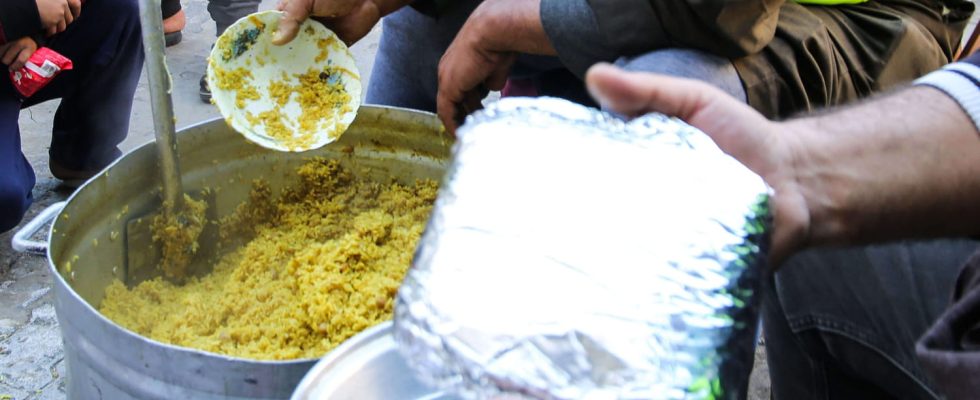Owner of several restaurants in the United States, the Spanish-American star chef José Andrés is used to humanitarian operations. He visited Gaza and pledged to deliver hundreds of tons of food aid.
A starred chef at the head of a food aid operation for the Gaza Strip. With the NGO World Central Kitchen (WCK), of which he is the founder, the Spanish-American chef José Andrés has already provided significant food aid in the Palestinian enclave. “We have served more than 35 million meals, sent more than 1,400 trucks through the Rafah crossing and opened more than 60 community kitchens across Gaza,” says the renowned chef in a statementbut on March 12, 2024 a new operation signed WCK began: the sending of a boat “filled with nearly 200 tons of food and a team” to make the first maritime delivery of aid to Gaza.
José Andrés and the WCK organization mobilized with the inhabitants of Gaza from the first weeks following the start of the conflict between Israel and Hamas following the attack by the Islamist group on October 7, 2023. Thanks to his network of leaders and professionals in the food sector as well as with the help of volunteers, the NGO is able to import food to initiate aid and can count on partners to continue the distribution of meals to disaster victims.
Gaza is not the first mission that leader José Andrés and his NGO have committed to. Word Central Kitchen was founded in 2010 after the devastating earthquake in Haiti and has since found itself in numerous disaster sites: Puerto Rico after the passage of Hurricane Maria in 2017, various actions in the United States in 2020 during the Covid pandemic -19 or in Ukraine in 2022 after Russia invades the country. Since 2010, 350 million meals have been distributed according to the NGO.
200 tons of food on the way and 500 tons to come
Among the 200 tonnes of food aid collected and being transported to Gaza, we find rice, vegetables, sources of protein, canned goods… A wide range of food to meet the needs of civilians who are full armed conflict. The contribution is already colossal and “our team has 500 additional tonnes of aid in Cyprus, ready to be loaded on future boats” warns José Andrés.
But since the start of the conflict, the aid provided has been concentrated mainly in the south of the Gaza Strip, as the star chef pointed out on his networks during a trip to Gaza last December: “I visited many WCK kitchens in Gaza. This one is in Rafah […] serves thousands of meals per day… in addition to delivering our food kits to thousands of families per day. The situation in the south is tense but… The real crisis is in the north where hundreds of thousands live in terrible conditions.” And it is precisely to the north of Gaza that José Andrés wishes to direct part of the aid provided by the sea convoy, because “the people of northern Gaza are suffering and really need this food.”
But if the entry of humanitarian aid to the south of Gaza is already complicated, it is even more prevented towards the north. Consequence: food is lacking in quantity throughout the enclave. To bring in more food, the WCK is working in parallel with sending the boat to the construction of a pier “which [leur] will be used to unload the aid before loading it onto trucks which will deliver the food.” This pier is for the moment the only hope of bringing aid by sea and circumventing some of the difficulties faced by humanitarian convoys at the entrance to Gaza.
A million meals a day
With these 60 WCK kitchens already established and the arrival of tons of food in Gaza, the star chef has set himself the objective of being able to distribute one million meals per day in the Gaza Strip, in addition to distributing part of these meals in the north of the Palestinian enclave.
The aid provided by José Andrès’ NGO is valuable, but it cannot be enough to meet the needs of Gazans. As the World Food Program (WFP) recalled at the end of February 2024, there is a real risk of famine in the Gaza Strip between now and May according to the Famine Review Committee. The UN has also warned of this risk which seems more and more inevitable.
